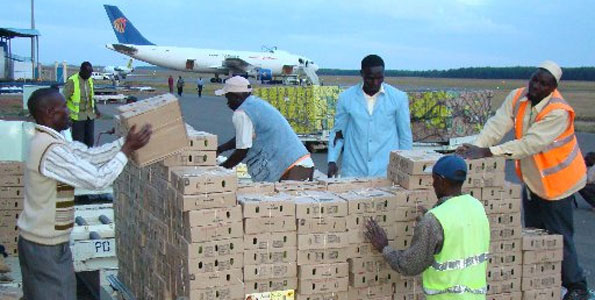Lack of funding hinders horticultural exports
ZimTrade is increasing engagements between Zimbabwean farmers and buyers in Europe and the United Kingdom, where the focus is on market requirements.
Zimbabwe’s horticulture farmers are struggling to penetrate export markets because they are failing to mobilise funding required to obtain accreditations from international agencies, industry players have said.
“They can’t access funding timely and at a reasonable price but we have some of the best
farmers who have previously proved their ability,” Dr Edwin Moyo, chief executive of
Nhimbe Fresh, which supports hundreds of smallholder farmers, said in an interview.
“We implore the financial services industry to come up with facilities to help the farmers
obtain the accreditation, a prerequisite to enter into these export markets.”
The certification involves capacitating the farmers with skills to grow the crops, the
application and disposal of chemicals, and handling during harvesting, storage among
others.
Depending on the crops, the cost of obtaining the accreditation may be as much as US$1
500 for an individual.
Nhimbe Fresh used to fund 500 small-scale farmers but the company has since trimmed
its support due to funding constraints.
“They are getting smaller and smaller because we can’t finance them anymore,” said Dr
Moyo.
Zimtrade chief executive Allan Majuru told this paper recently that some horticulture
exporters in Zimbabwe were facing capacity challenges in accessing the EU market thus
limiting their ability to realise full export growth opportunities.
“To address this challenge, ZimTrade is developing export clusters across the country
where the target is also to integrate smallholder farmers into export business,” said Mr
Majuru.
“By doing this, the country will increase the number of producers, which in turn will
boost- linked production. In the previous years, other horticulture farmers have also not been able to fully participate in exports due to market access requirements (SPSs and TBTs) being imposed by the EU,” he added.
This has resulted in some farmers giving up on exports, closing, and others downsizing.
To address this, ZimTrade is increasing engagements between Zimbabwean farmers and buyers in Europe and the United Kingdom, where the focus is on market requirements.
Currently, typical cash crops being produced for the export market include temperate
fruits (oranges, apples, pears, peaches, and nectarines), tropical fruits and vegetables
(baby corn, butternut, citrus, chili, gem squash, kiwi, lychee, mango, passion fruit, and
pineapples), baby carrots, fine beans, cherry tomatoes, mange tout peas, melon,
strawberries and sweet corn, as well as flowers.
The major markets for Zimbabwe’s horticultural exports are; the Netherlands, the United
Kingdom, South Africa, Germany, Hong Kong, Portugal, France, China, Norway, Poland
and Spain.-The Herald











